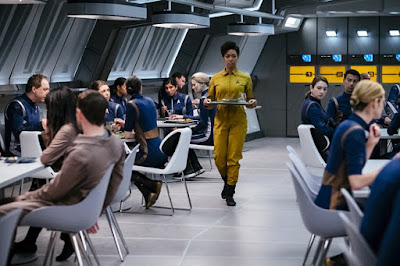As a white British male all I really understood when NWA’s ‘Straight Outta Compton’ album hit the record stores in the late 80s was that that I liked this darker, harder, more political rap just as much as I'd liked most of the strictly groove based incarnations throughout the decade.
The small West Country town I grew up in had violence aplenty but I’m talking different factions of music lovers scrapping over turf with fists and feet. No guns, no hard-core gangs, no genuine deprivation - ours was a predominantly middle-class, Caucasian town although youth culture was driven by my working class peers more than by anything else at that time.
Being young, black, talented and ambitious in Compton at that time was a very different matter and did not excuse the NWA members from police harassment and brutality or from gang-bangers swaggering around the neighbourhood brandishing handguns in case their dicks and bravado were not large enough. If the music was hard - lamely dubbed ‘gangsta rap’ by a white mainstream media as frightened by the truth of certain aspects of their country’s schizophrenic attitudes to privilege and power as it was thirty years earlier when rock and roll thrust so many black artists into the public domain - it was because it reflected the truth of the world these young men grew up into.
No, they were not innocents and their early careers were peppered with controversy, street language to go along with the street knowledge, drugs, sex and conflict both within the group and from that appalled white media.
What this movie conveys despite not wanting to pretty up the darker aspects of the lives of the three greatest contributors to the NWA sound - Ice Cube, Eazy E and Dr Dre - is the friendships that endured despite betrayals over money and personal power trips, the importance of their music and lyrics to a disenfranchised generation of black youths and their wider cultural influence. Surely only Public Enemy can lay claim to similarly vocalising the issues of that generation and equally providing musical foundations for the generations to come.
The performances are spot on with Jason Mitchell’s portrayal of Eric ‘Eazy E’ Wright particularly compelling. He is the heart of the movie, Dre (Corey Taylor) and Cube (played by his own son, O'Shea Jackson Jr) initially revolving around him like planets orbiting a star but eventually realising they have to find their own way, their own trail across the heavens if you will, in order to fully satisfy a creative compulsion that E seems to drop the ball on once the money and the drugs and the women come rolling in.
E’s widow was an executive producer along with Cube and Dre which means this is ultimately a love-letter to a dear friend and partner whose sexual appetites led to a shockingly early demise from AIDS related complications just as the three friends seemed on the verge of getting past their conflict and rivalries and were looking to record new material with the original line-up.
If the tragedy is Eric Wright’s ignorance that heterosexuals could spread HIV as well as homosexuals (still a very common fallacy at the time), an ignorance that ultimately led to his death, the menace is brought into sharp focus by R. Marcos Taylor’s depiction of Suge Knight, founder of Death Row Records and a man with a reputation for being more than happy to settle old scores and fresh grievances with violence and death threats.
For all the sombre tones this is also an exhilarating tale of a group of guys who defied the odds of their locality and their position within society to make celebratory as well as angry music - Express Yourself funks along like James Brown on sensimilia.
Great movies about rock and roll bands are rare. Great movies about rap artists are even more rare but this surpasses pretty much all that do exist. And it's even got Paul Giamatti doing his customary trick of playing a character you somehow both love and hate, this time as the band’s manager Jerry Heller.
Yes I know that Ice Cube has since made some god awful family movies to pay the bills but he's also been involved in scripting and performing in one or two classics along the way, not least ‘Boyz N The Hood’. Dr Dre has spent the years since NWA’s heyday perfecting the incredible talent he already had for laying down beats and producing music with some of the greatest rap artists of all time. ‘Straight Outta Compton’ leaves them both on the cusp of these developments in their lives, distraught at the death of Eazy E but looking forward.
The film ends with actual footage of NWA videos, news clips describing reactions to E’s death from the rap community and the public, and snippets of the futures to come. At a time when white supremacists march openly in the United States of America and the uber white-privileged man in the White-est of White Houses fails to condemn such defiantly racist behaviour, the history and the messages of NWA are perhaps even more important than they were at the time.






